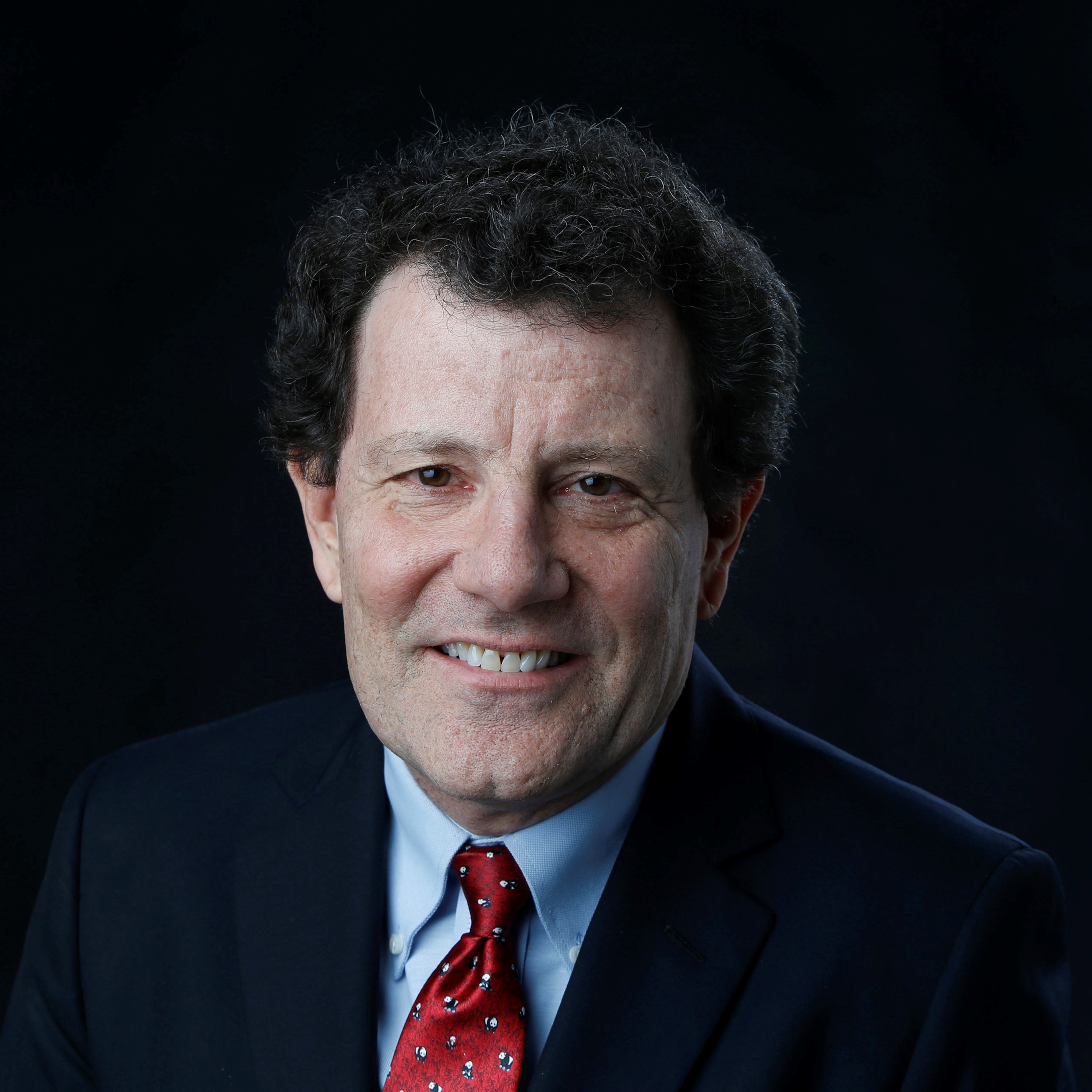
Pulitzer Prize Winners Nicholas Kristof and Cheryl WuDunn have written a new book, Tightrope: Americans Reaching for Hope, to be released next month. The book will follow the model of the couple’s previous collaborations, Half the Sky and A Path Appears, painful analyses of big social problems that also celebrate the hope found in existing solutions. Without the benefit of a review copy, I recorded a discussion of the book and some of his other writing with Kristof several months ago. I invite you to watch the interview in the player above. Kristof’s thoughtful manner of speaking reflects a mind practiced in editing his prose as he goes, sometimes causing him to pause mid-sentence only to finish the thought by starting or finishing a new sentence, leaving the last incomplete. It’s a style that has garnered the New York Times columnist millions of social media followers to whom he has often appeared in self-produced videos like mine (the key difference being the size of our respective audiences). His millions of fans and followers feel an authentic connection to the self-described “farm boy” from Oregon, despite more than because of his Harvard and Oxford (as a Rhodes Scholar) education and 30+ years at the Times. Kristof partners with WuDunn, his wife of three decades with whom he has three children, to write books. They won a Pulitzer for their coverage of the Tiananmen massacre in 1989 while they both worked at the Times. WuDunn now works in banking. For Tightrope, which he describes as “deeply personal,” Kristof begins with his own beginning, returning to his rural hometown of Yamhill, Oregon. He focuses on the kids who were on his old school bus. “And about a quarter of those kids have passed away largely from what economists call a death of despair, drugs, alcohol, suicide and also reckless accidents.” “Most of America has looked the other way as working families have collapsed into a miasma of lost jobs, drugs and shortening life expectancy,” he told me. “One of the stories we tell is of some neighbors who lived not far from us,” he says beginning his narrative. “There's a family of five kids. The oldest was in my grade. Really, I mean, everybody was very smart. And they had risen very, very quickly. I mean, the 20th century had been enormously good to them. The dad had a good labor union job. And then then everything kind of collapsed and the jobs went away. The kids all ended up dropping out of school and they self-medicated with that with alcohol, with other drugs.” “And then then they became less employable, less marriageable. The family structure, which had been really strong in my community, just collapsed very, very quickly. The social fabric, it became undone,” he said, speaking of his hometown. “And so now of those five kids, four of the five are now dead. And the only one who survived survived because he spent 13 years in the Oregon State Penitentiary on drug offenses.” Read the full Forbes article and watch the interview here: http://bit.ly/35MqCeM











